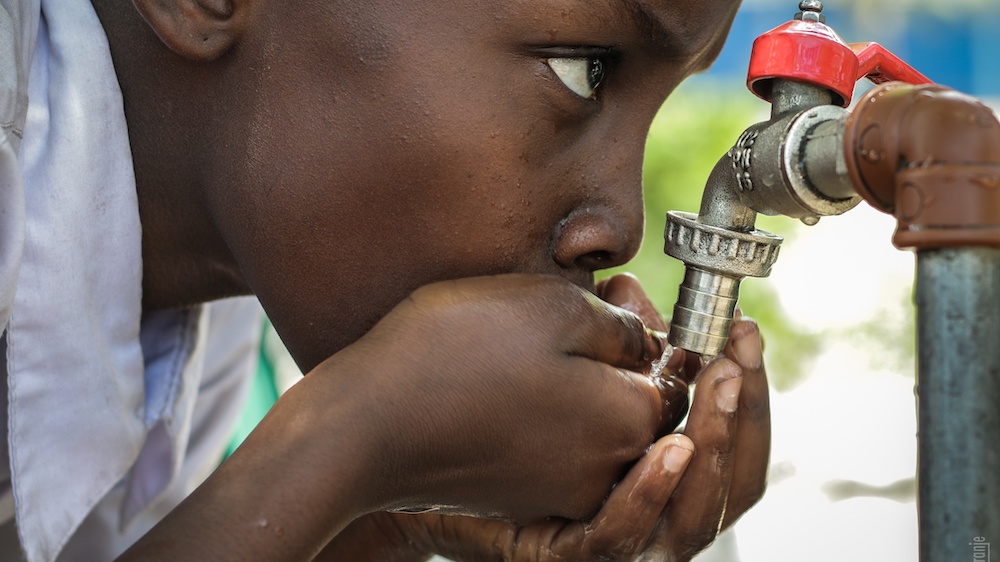If you’re interested in sharing your opinion on any cultural, political or personal topic, create an account here and check out our how-to post to learn more.
Opinions are the writer’s own and not those of Blavity's.
____
A small Black community in Michigan discovers high levels of lead in their water after the state hired an emergency manager to oversee the town and cut costs. Does this sound familiar?
No, I’m not talking about Flint.
Benton Harbor, Michigan, is a Black community just a few hours west of Flint, where the water system has exceeded the state’s lead action levels six straight times in the last three years, more than any other city in Michigan. Recent tests found lead levels with results as high as nearly 60 times federal standards. There is no safe level of lead. Right now, state officials should be supplying emergency drinking water to Benton Harbor residents while also implementing a plan to remove all of Benton Harbor’s 6,000 lead service lines within 12 months. But that’s not happening.
I was born and raised in Michigan, and the drinking water issues faced by residents throughout the state are personal for me. Growing up in Detroit, I lived in a home where the water was occasionally shut-off because my parents, who both worked full-time, couldn’t afford the unreasonably and inexplicably high water bills at times. Some of my closest friends were poisoned in Flint. I had loved ones impacted by the Kalamazoo River Oil Spill. The list goes on. But by now, Michigan, of all places, should know better.
85% of Benton Harbor’s residents are Black and 45% of all people of color there have an income below the federal poverty level. It comes as no surprise that when lead-contaminated water was discovered earlier this July in Clarksburg, West Virginia — which is 90% white — The Environmental Protection Agency (EPA) immediately issued an Emergency Administrative Order. Meanwhile, the people of Benton Harbor have been waiting for the safe drinking water they deserve for almost four years.
It is immoral to allow people to drink lead-contaminated water for years, and I can’t believe I have to say all this again. I was proud to join a coalition of 20 groups who filed a petition to the EPA last month seeking emergency action because Benton Harbor residents shouldn't drink unsafe water for one more day.
Governor Gretchen Whitmer proposed to seek “every federal, state and local resource available” to raise $20 million to replace Benton Harbor’s lead water pipes, repair the city’s water infrastructure and provide drinking water filters, but made no free source of safe water available. Plus, the state is already failing to meet its own deadlines for action. It’s time for Michigan officials, many who were elected in part because of the previous administration's incompetence on Flint, to fix this now.
Far too often, our most vulnerable communities are used as canaries in the coal mine. Decision-makers tend to wait until people of color, low-income individuals, pregnant women, the elderly and children are exposed to environmental hazards before remedial action is taken — when primary prevention should be paramount to public health. Children of color and low-income kids have greater exposure to lead in water, paint, soil and air. And drinking water systems in marginalized communities are more likely to be in violation of the law and stay in violation for longer.
Flint residents spoke up for the whole world to hear. The Flint water crisis has served as a warning to the nation of what happens when you don’t take care of your water infrastructure and refuse to listen to the community. The Michigan Civil Rights Commission concluded the poor governmental response was a “result of systemic racism.”
But Michigan clearly hasn’t learned its lesson; we’re back at square one just a few towns away. I’m a staunch advocate for safe water, but we shouldn’t have to fight for it in every Black town, especially in a state that has been through this before.
Update 10/8/2021: The Michigan Department of Health & Human Services has since announced that the state will provide free emergency bottled water for Benton Harbor residents as it works towards a solution.
____
Jeremy Orr is a senior attorney at the Natural Resources Defense Council, where he focuses on drinking water and source water protection issues, working to ensure that everyone has access to safe, sufficient and affordable drinking water.
